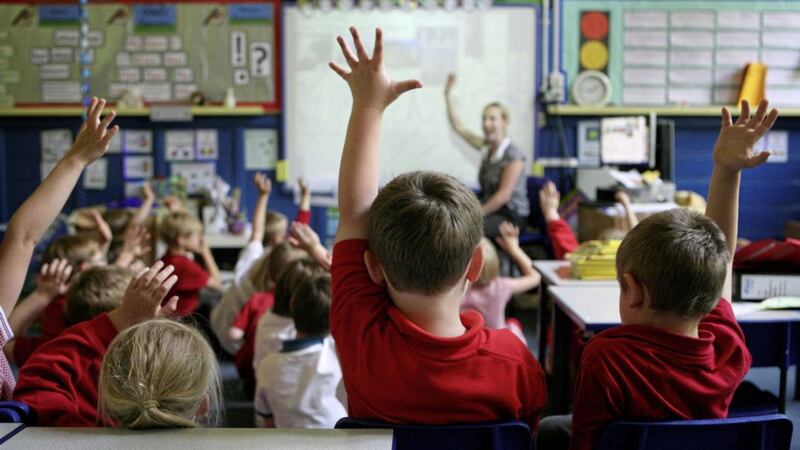Poorer children are already behind in their studies by the time they start school, research in Northern Ireland showed.
A third of five-year-olds growing up in poverty were in the lowest performing group, charity Save the Children said.
Many lagged into their teens and a new study has highlighted the impact on their cognitive and language skills.
Charity head Peter Bryson said: "Too many children in Northern Ireland are falling behind even before they start school.
"We have a commitment in the Programme for Government to give every child the best start in life, this is welcome but this research suggests that action is needed now, child poverty is on the rise therefore the longer we wait the bigger the gap will become and the harder it will be to solve."
Save the Children commissioned research showing children are being left behind at the age of five and highlighting the impact on their skills at ages seven, 11 and 14.
More than 100,000 are living in poverty, just under a quarter of all youngsters.
More than one third (34 per cent) of impoverished five-year-olds were in the lowest performing group compared with one fifth (22 per cent) of their peers.
About half who were in the lowest performing group for language ability at age five remain in the bottom at age seven, 11 and 14.
However, about half of low-income children in the lowest performing group moved out of it.
The charity said: "This demonstrates that a child's future is not pre-determined and that the right interventions can improve the early learning outcomes and other life chances of children growing up in poverty."
Previous research has shown that by the age of three, poorer children are estimated to be, on average, nine months behind children from wealthier backgrounds.
Mr Bryson added: "Since we know that 38% of low-income children live in families where the youngest child is under five, it is crucial that interventions focusing on breaking the link between poverty and educational achievement take place long before children start school, when the need is greatest and they can make the most difference.
"The impact of poverty on children's early learning means they are more likely to struggle with vital areas of their development, such as language and communication skills."







